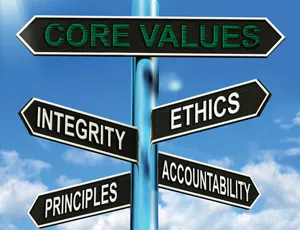Communication is both the greatest and most challenging elemental action in the Universe. It can make or break a deal. It can hurt or lift up. It can confuse or clarify.
Communicating is hard to do, but it is also necessary in our lives every single day.
We use communication to build and develop relationships, inform of news, whether personal or professional and educate on skills and experience. Because it is used for such pertinent reasons, we have to be more aware of the way we deliver what we are trying to say.
We have all heard the advice, "Think before you speak." It's advice we should heed so that we can improve ourselves. As business owners, managers and leaders, we also need to be cognizant of the clarity of our communication so that we can be better manufacturers of greatness in our colleagues, employees and team members.
In the world of HVACR, we must live by details. Leaving one screw loose, misaligning installations or minor flaws in ductwork can make a significant difference in the quality delivered to the customer.
Providing upfront, detailed communication on guidelines of how to run a service call, install a unit or replace ductwork allows clear understanding. If your techs and team know the step-by-step process, learn it in their initial training and practice and apply it before going out into the field to the point where they no longer need to look at the guidelines, your communication is on the right track.
There is a little more of a gray area when you consider the communication necessary to train others in communication or professionalism. Many factors come into place, such as tone, format, body language and timing.
Some people prefer more information, and others, less. Some individuals require asking a barrage of questions before they feel comfortable executing, while others want to be given a task with an end goal, then be empowered to make it happen in the best way they know how.
It's important to help your team to find a balance between over-communicating and lacking an adequate amount of communication. The way in which different people present information can cause a miscommunication in your office or in the field.
If an employee who has a tendency to include unnecessary details in an explanation tries to relay information to a more concise employee that only deals in critical facts, the meaning can get lost.
The person who is used to succinct communication may not be able to find the core meaning of the person who is providing extra details. The team member who communicates in grand detail may be simply explaining where a technical step-by-step manual is located, but he adds so much information about the information in the manual and the location it can be found that the receiver is not sure what is actually the core of the communication.
Well-planned interviews can help you to determine a prospect's personality or communication style. You don't necessarily have to hire individuals of only one personality or one communication style; in fact, it's better if you hire a variety of styles. You do, however, have to understand how they best give and receive communication.
In today's technological age, communication through texting and email lacks tone and can also often be misconstrued. Leaving out simple punctuation can completely change the way someone reads the communication.
For example, in response to an employee telling you that they are late for the fifth day in a row:
"K" vs. "Okay, thank you for letting me know. We'll discuss when you arrive."
First of all, "K," is a universal, passive aggressive response for "It's not okay," so if it's not okay, just be straightforward or pick up the phone and have the conversation to clearly communicate how to correct the situation.
Another example of appreciative communication:
"Thanks." vs. "Thanks!!"
Using periods, as opposed to exclamation points, can display a more terse tone of communication and may seem insincere via text or email. It seems more like an obligatory thanks, which no one really wants to receive.
In addition to showing small forms of thanks through brief texts or emails, it's also important to communicate gratitude in more ways than one. This is something that is contagious, and it should be just that in a business setting.
Whether they will admit it or not, people like being appreciated. Say, "thank you," to the team that works for you for 8+ hours each day at the end of the day so they know their work did not go unnoticed. Pick up coffee or lunch for your technician because their day was slammed with appointment after appointment.
When you see one of your team members working extra hard, write them a thank you to let them know you've noticed the extra effort. Reward with a bonus or a raise when you can, but the gratitude doesn't always have to be big.
As someone who has seen what thanks and appreciation can do for his team, practice and apply these simple gifts of gratefulness and you'll watch your team begin to emulate the same behaviors. The ultimate and happiest form of communication is gratitude, but it's not something that can be forced. In the end, this communicating appreciation provides dual benefits — it shows your managers and team members that you care, and it demonstrates simple lessons of communication that will easily catch on because you have led by example.
 Ben Hubbert, co-owner of Champion AC, is a former member of Special Operations in the Air Force (Combat Control) who's now committed to helping the San Antonio community reduce its demands on the energy grid. Ben is a firm believer in education and constantly teaches new customer service approaches and techniques. Visit www.championac.com for additional information.
Ben Hubbert, co-owner of Champion AC, is a former member of Special Operations in the Air Force (Combat Control) who's now committed to helping the San Antonio community reduce its demands on the energy grid. Ben is a firm believer in education and constantly teaches new customer service approaches and techniques. Visit www.championac.com for additional information.


 Ben Hubbert, co-owner of Champion AC, is a former member of Special Operations in the Air Force (Combat Control) who's now committed to helping the San Antonio community reduce its demands on the energy grid. Ben is a firm believer in education and constantly teaches new customer service approaches and techniques. Visit
Ben Hubbert, co-owner of Champion AC, is a former member of Special Operations in the Air Force (Combat Control) who's now committed to helping the San Antonio community reduce its demands on the energy grid. Ben is a firm believer in education and constantly teaches new customer service approaches and techniques. Visit 


